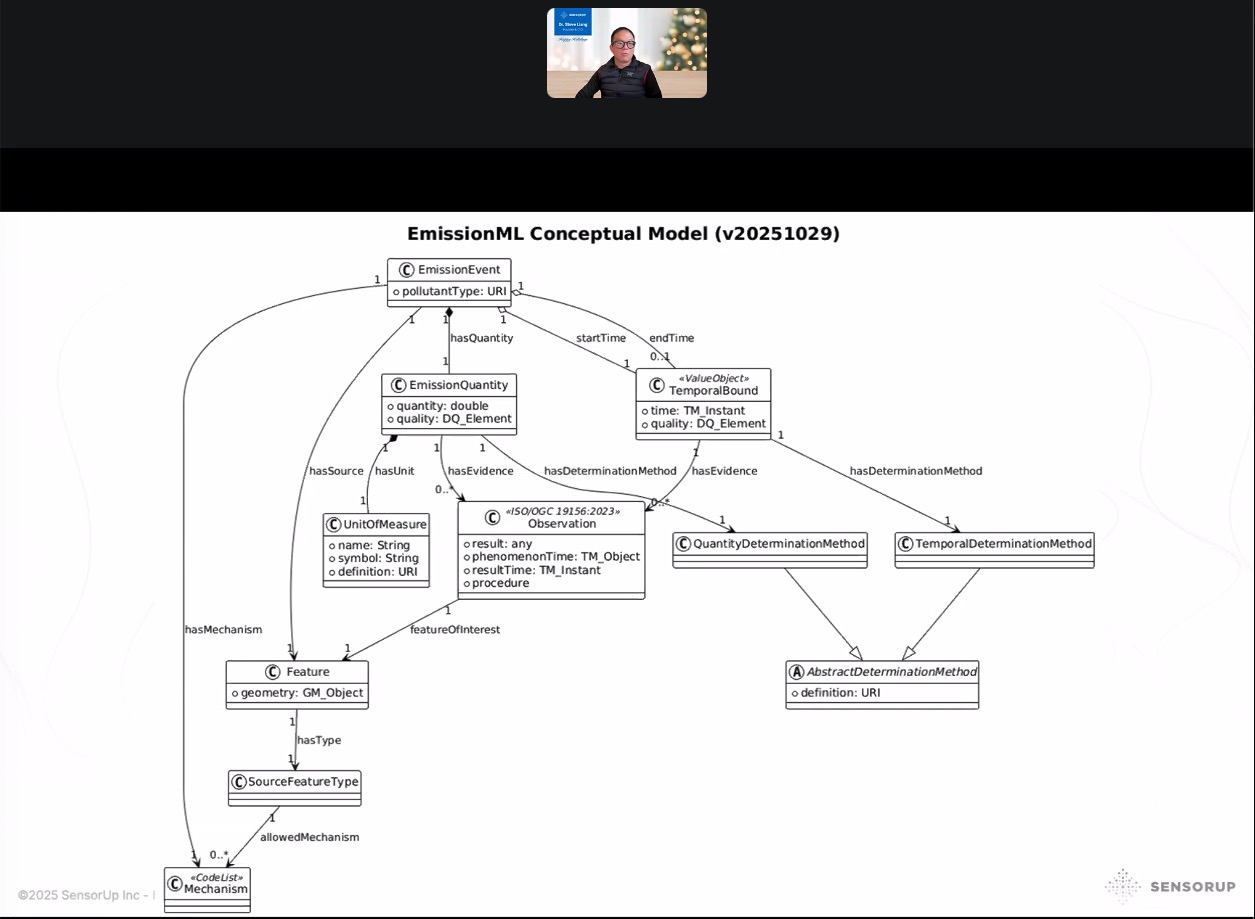EmissionML Foundations Training: Core Ontology and Entity Relationships

On November 12, 2025, our lab director, Dr. Steve Liang, presented a 30-minute introductory webinar on EmissionML Foundations: Core Ontology and Entity Relationships.
Many organizations, including operators, regulators, and sensor vendors, manage emissions data using multiple systems, formats, and proprietary interfaces. This fragmentation introduces inconsistencies, limits interoperability, complicates compliance and analysis, and ultimately hinders effective emission-reduction operations.
The webinar addressed a critical question: What if emissions data could be shared seamlessly across systems, vendors, and sensing technologies while remaining traceable, auditable, and ready for analytics and AI?
What We Covered
The OGC Emission Event Modeling Language (EmissionML) is an emerging open-standard ontology and data model developed within the Open Geospatial Consortium to define emissions data that are sensor-agnostic, vendor-neutral, traceable, and interoperable. The standard is being developed by the OGC EmissionML Standards Working Group, chaired by Dr. Steve Liang. Note that EmissionML is still evolving and not yet finalized—the standard continues to be refined based on community feedback and use cases.
During the session, Dr. Liang presented the first principles of EmissionML—how it organizes emissions observations, ensures data lineage, and prepares datasets for integration with analytical and AI workflows.
The presentation covered:
• The Why: The role of standardized emissions ontologies in ensuring transparency, regulatory assurance, and operational efficiency
• The What: Core entities, relationships, and metadata defined in EmissionML
• The How: Methods for reconciling heterogeneous data sources into an auditable and traceable structure
• The Next Steps: Key questions to assess data readiness and vendor compatibility

The session also featured a live demonstration showcasing how emission events can be visualized and analyzed using the standardized data model.
Key Takeaways
This 30-minute session provided a solid foundation for understanding EmissionML’s core principles—how it organizes data to be sensor-agnostic, vendor-neutral, and ready for analytics. The webinar was well-received by professionals working in emissions accounting, ESG data management, and digital operations who seek to improve efficiency and effectiveness of emissions reduction operations and reporting.
Watch the Recording
For those who missed the live session or want to review the content, the full recording is available:
Watch the EmissionML Foundations Recording
Learn More
For more information about EmissionML, visit the official GitHub repository where you can find the latest development, use cases, and contribute to the standard. The latest UML diagrams are available in the 25-019 branch. As the standard continues to evolve, we encourage the community to participate in its development and provide feedback.
Enjoy Reading This Article?
Here are some more articles you might like to read next: